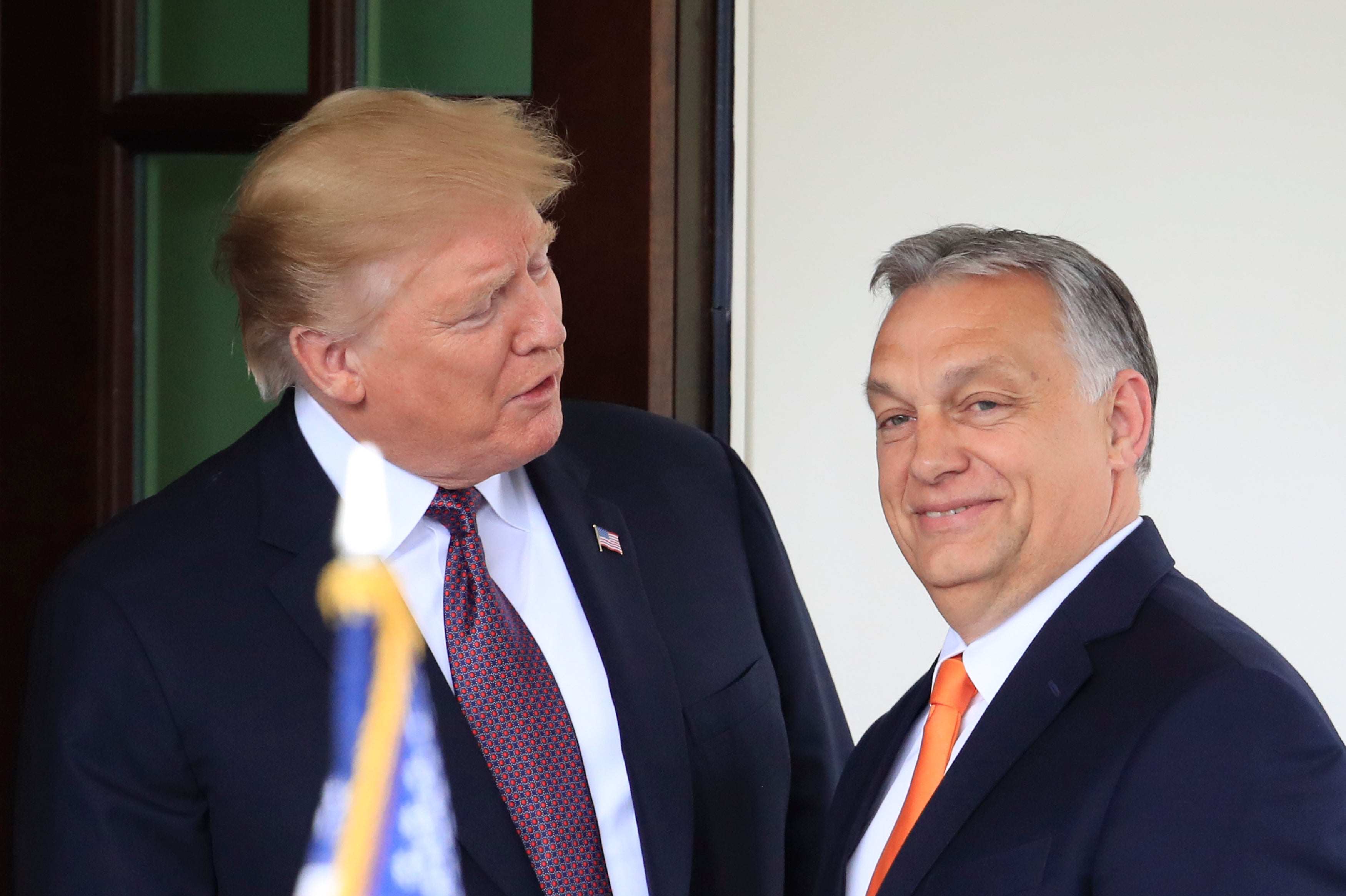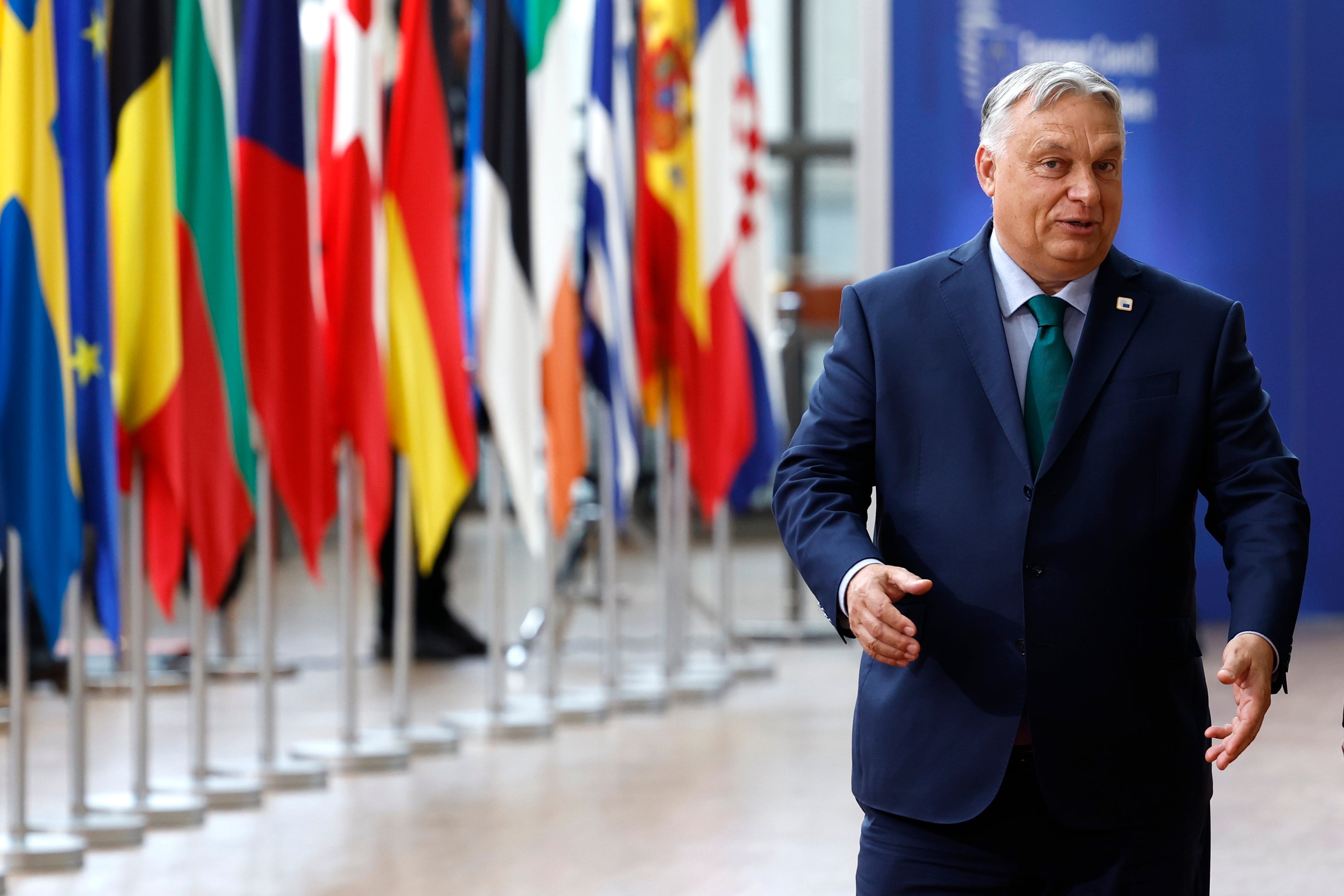This website uses cookies so that we can provide you with the best user experience possible. Cookie information is stored in your browser and performs functions such as recognising you when you return to our website and helping our team to understand which sections of the website you find most interesting and useful.
Support truly
independent journalism
Our mission is to deliver unbiased, fact-based reporting that holds power to account and exposes the truth.
Whether $5 or $50, every contribution counts.
Support us to deliver journalism without an agenda.

Louise Thomas
Editor
Ursula von der Leyen has vowed to create “true European Defence Union” including an “air shield” across the bloc in the face of the threat from Russia, having been re-elected as the EU’s top leader for a second five-year term.
Ms von der Leyen pledged that the union will have flagship projects around air and cyber defences to ward against threats such as Russian aggression typified by their invasion of Ukraine and uncertainty over continuing American support for Kyiv with Donald Trump running for the White House again.
"Working with member states and in close coordination with Nato, we will propose a number of Defence Projects of Common European Interest starting with a European Air Shield and cyber defence," she said ahead of a secret ballot on her candidacy.
The 65-year-old, who been president of the European Commission commission since 2019, won 401 votes from the 720-member European Parliament, with 284 voting against her and 15 MEPs abstaining. There was a toyal of 707 votes.
"The next five years will define Europe’s place in the world for the next five decades. It will decide whether we shape our own future or let it be shaped by events or by others," Ms von der Leyen said.
Ms Von der Leyen raised both fists in victory as the parliament president Roberta Metsola read out the results at the legislature. After the vote, she added: "Our democracy is under attack from inside and from outside, and therefore it is crucial that the democratic forces stand together to defend our democracy".
Her supporters said the EU needed a safe, stable pair of hands as Ukraine’s future looked uncertain. In her speech before the vote, Ms von der Leyen blasted Hungarian Prime Minister Viktor Orban's recent visit to Russian President Vladimir Putin in Moscow as an "appeasement mission", winning broad applause from those inside the parliament, while pledging to support Ukraine for as long as it takes in its fight against Russia.

Defence policy in Europe has traditionally been the domain of national governments and Nato, which the US gives significant backing to.
But following Russia’s invasion on Ukraine and amid uncertainty over how much Europe will be able to rely on the United States should Trump and his “America first” doctrine return to the White House in November’s election, the European Commission is seeking to push more joint European defence projects.
The Kremlin claimed Ms von der Leyen’s EU defence pledge was a sign of the EU’s shift to “militarisation” and “confrontation”. I
Ms von der Leyen also stressed the need not to backtrack on the "Green Deal" transformation of the EU economy to fight climate change – a key pledge for Green lawmakers, who joined centre-right, centre-left and liberal groups in backing her for the post.

Ms von der Leyen pledged to stick to the goals set out in the European Green Deal, a climate package that was one of the main policies of her first term. She promised a raft of climate policies including a legally-binding EU target to cut emissions 90 per cent by 2040. She also promised new measures to help European industries stay competitive while they invest in curbing emissions.
In a speech that sought to shore up support from across the political spectrum, Ms von der Leyen pledged to strengthen the EU economy, its police and border agencies and tackle migration. But that was not enough to secure the support of Italian prime minister Giorgia Meloni's hard-right Brothers of Italy party, which said it had voted against her.
Ms von der Leyen centralised decision-making style has alienated officials across the bloc, but the Greens' decision to join the informal alliance of parties that supports her ensured the margin of victory was fairly comfortable. She needed 361 votes to secure a majority in the chamber.
Her own coalition of the centre-right, centre-left and liberals has 401 seats, but some of its members were expected to vote against her in the secret vote.
Ms von der Leyen's re-election provides continuity in the European Union's key institution at a time of external and internal challenges - including mounting support for far-right and eurosceptic political parties in the 27-nation bloc.
One radical right politician, Diana Iovanovici-Sosoaca of Romania, was escorted out of the parliament's chamber for heckling a speaker during the debate following Ms von der Leyen's speech. Ms Iovanovici-Sosoaca briefly wore what appeared to be a muzzle and held up religious icons before being led out of the room.
"I will never let the extreme polarisation of our societies become accepted. I will never accept that demagogues and extremists destroy our European way of life. And I stand here today ready to lead the fight with all the Democratic forces in this house," Ms von der Leyen said in her final pitch before the vote.
During her first term, Ms von der Leyen became known as Europe’s crisis-manager-in chief, steering the bloc through the pandemic, Russia’s full-scale invasion of Ukraine and the subsequent energy crisis. She also oversaw a £700 billion EU response to the Covid-19 pandemic, and 14 rounds of sanctions against Russia over its invasion of Ukraine.
In the coming weeks, she will propose her team of commissioners, who will face individual hearings from lawmakers before a final vote on the whole Commission later in the year.



 Africana55 Radio
Africana55 Radio 
